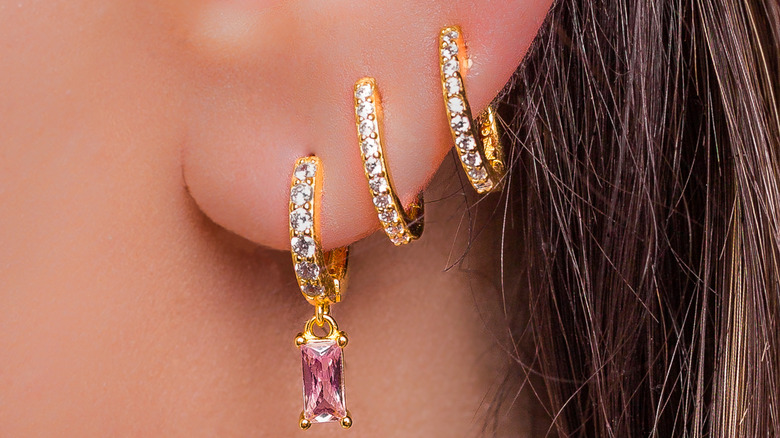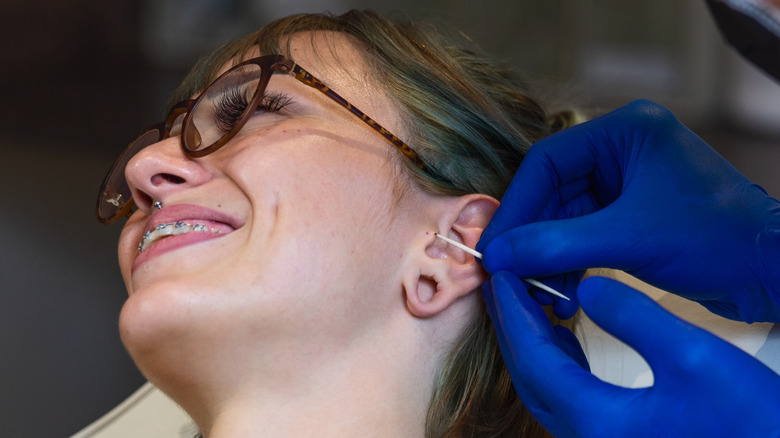Is It Safe To Pierce Your Own Ears?
Piercing your ears seems simple enough to do by yourself at home. After all, we've seen it done countless times in our favorite coming-of-age teen movies, right? An ice cube, a sewing needle, and a tolerance for pain seem to be all that's required. But is at-home piercing the safest way to go about getting that new ear stud?
According to the Static Brain Research Institute, 83% of Americans have pierced ears (via Revere Health). Whether performed by a professional piercer or by a medical doctor, it's clear that ear piercing is a popular form of self-expression across the country. Sanitation and diligent aftercare are two important factors when it comes to a new piercing, so taking the proper precautions during and after the process is crucial. While piercing your own ears may seem like an appealing low-cost alternative to a professional service, experts say there are some risks to taking the needle to your own ear. First off, if you're reaching for a sewing needle as your DIY piercing tool, it's important to know that there are some distinct differences between a sewing needle and a piercing needle.
Piercing needles and sewing needles are not the same
According to Beauty Hacks 4 All, piercing needles come in many different gauge sizes. The 3 most common types of piercing needles used by professionals are the hollow, cannula, or curved needle. The needle that will be used ultimately depends on the type of piercing being administered. For ear piercings, most piercers will use an 18-20 gauge hollow needle. While this is among the smallest of needle sizes used, a sewing needle is even smaller. When using a sewing needle, you're inflicting more of a tear in the earlobe, rather than a fully formed hole (via Our Everyday Life).
Using a sewing needle to pierce your ears increases the risk of bacterial infection, according to Our Everyday Life. The trauma inflicted on the ear by the needle makes the area particularly susceptible to bacterial contamination — especially if the needle has not been sanitized correctly. The use of antiseptic lotions, boiling water, or rubbing alcohol are a few recommended at-home sterilization methods by Beauty Hacks 4 All. However, it's important to stress that without a professional present, there is no way to guarantee that the needle has been sufficiently sanitized.
When it comes to the health and safety of your body, it's best to let a professional do the work. Going through a doctor or piercing professional will mean the proper tools and disinfectant chemicals are being used so you can safely and confidently rock your newest accessory.


